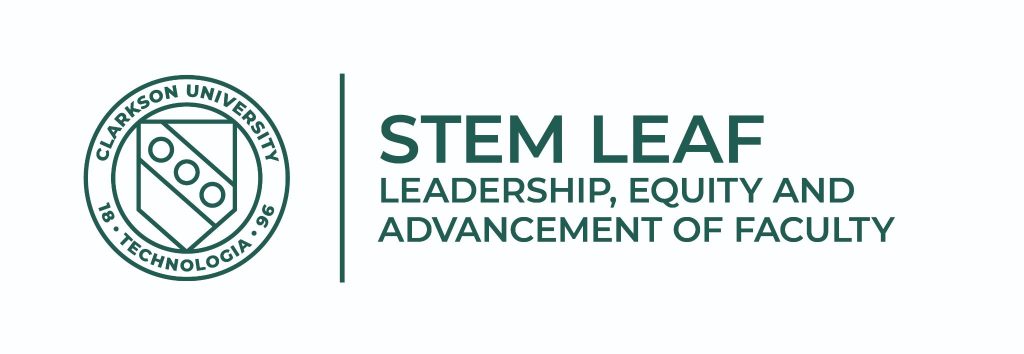
Welcome to the January edition of the STEM LEAF/ADVANCE Newsletter!
Upcoming Webinar
Gender & Retention Patterns Among U.S. Faculty Presented by Katie Spoon and Aaron Clauset for the AARC on Thursday, February 1st from 1-2pm ET
“Women remain underrepresented among faculty in nearly all academic fields. In this talk, using a census of 245,270 tenure-track and tenured professors at United States–based PhD-granting departments, we show that women leave academia overall at higher rates than men at every career age, in large part because of strongly gendered attrition at lower-prestige institutions, in non-STEM fields, and among tenured faculty. A large-scale survey of the same faculty indicates that the reasons faculty leave are gendered, even for institutions, fields, and career ages in which retention rates are not. We show that women are more likely than men to feel pushed from their jobs and less likely to feel pulled toward better opportunities, and women leave or consider leaving because of workplace climate more often than work-life balance. These results quantify the systemic nature of gendered faculty retention; contextualize its relationship with career age, institutional prestige, and field; and highlight the importance of understanding the gendered reasons for attrition rather than focusing on rates alone.”
Webinar Recording Available
Recording Available for “The Inventor’s Patent Academy Webinar Series: Promoting Equitable Innovation“
Sponsored by Qualcomm, this WEPAN webinar series explores topics covered in The Inventor’s Patent Academy (TIPA), a free three-part course that supports current and future inventors in understanding patenting, intellectual property, and how to navigate the patenting system. The first webinar in this WEPAN series aligns with Module 1 of TIPA and featured a panel discussion with four inventors who shared their patent successes and challenges as well as strategies, tools, and tips for navigating your own patent journey.
News/Resources
“Male allyship in institutional STEMM gender equity initiatives” by M. Nash, R. Grant, R. Moore, et al.
“This article examines men’s involvement in an institutional gender equity award scheme and how their self-concept as allies develops over time. It draws specifically on a subset of qualitative data from the four men participating in a study involving in-depth interviews with university staff involved in the self-assessment team of one Australian institution’s Science in Australia Gender Equality (SAGE) Athena SWAN pilot. Data related to the men’s experiences is the article’s focus.”
“Marriage and baby blues: Redefining gender equity in the academys” by M. Mason and M. Goulden
“Traditionally, gender equity in the academy is evaluated in terms of women’s professional success as compared to men’s. This study examines gender equity not only in terms of professional outcomes but also in terms of familial outcomes, such as childbirth, marriage, and divorce. Using data from the Survey of Doctorate Recipients as well as data from a 2002 to 2003 survey of the work and family issues facing ladder-rank faculty in the nine campuses of the University of California system, the authors followed more than thirty thousand Ph.D.s in all disciplines across their life course and surveyed more than eighty-five hundred active University of California faculty. Results indicate that gender equity in terms of familial gains is as elusive as gender equity in terms of professional employment, raising the fundamental issue of what gender equity means in a university setting or in any fast-track employment setting.”
If you have any questions or concerns, please feel free to contact us at advance@clarkson.edu. If you’d like to keep up with information like this regularly, you can follow our Twitter account @ClarksonADVANCE. (Our PI team consists of Marc Christensen, Jen Ball, Laura Ettinger, William Jemison, & Stephanie Schuckers. Our Project Director is Sarah Treptow.)
Clarkson’s NSF ADVANCE grant is designed
1) to effect positive institutional change around reduction of implicit or unintentional bias associated with gender and intersectional issues of race, ethnicity, country of origin, sexual orientation, and disability,
2) to systematically and equitably support the development of inclusive leadership skills and the professional advancement of women STEM faculty, and
3) to implement sustainable, systematic changes across the University in support of these goals.